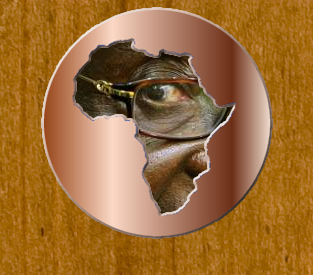Are African Regimes Learning Tech-Busting Tactics?

A panel at the Atlantic Council last week addressed questions surrounding the potential for the popular uprisings taking place in North Africa to spread south - to the rest of the continent. I was asked to discuss online repression techniques used to squash speech and expression, the degree to which these repressive approaches are likely in more closed countries in sub-Saharan Africa, and how citizens, activists and rights groups can prepare or respond.
On the broader question about uprisings gaining traction across Africa, with or without tech, there seems to be little notice of pockets of activism taking place in Sudan and Gabon, and we've seen opposition parties in Nigeria and Uganda making noise about taking lessons from their northern Arab neighbors if their respective governments don't hold credible elections this year. An important point raised some skepticism that the international broadcast media, that we believe played a key role in Tunisia and Egypt, would take notice in these other African countries if trouble continues.
My talk framed the ways authoritarian regimes hinder online expression and rights into three categories: finding ways of targeting individuals using monitoring, phishing and other techniques so they can take action to against them to discourage participation in politics; blocking access to the services people use to communicate by filtering or shutting down web or mobile services such as voice and SMS, Internet services including specific websites, social networks and email services (or of course the entire national communication infrastructure itself); and third, using the platforms and services themselves to counter the movements with their own propaganda by infiltrating networks or spreading propaganda in social networks and online forums.
In sub-Saharan Africa, we’re seeing concerning developments in at least the first two areas as the continent becomes more connected.
In Uganda, the Museveni government took the threats seriously enough to require that mobile operators in the country filter SMS messages around last weekend's elections - searching for words that may suggest that organizing was in the works and apparently blocking the SMS results reporting of the opposing presidential candidate. While blocking SMS around elections isn’t a new tactic in other countries like Belarus and many others, we’re not aware of anywhere else on the subcontinent that regimes have intentionally blocked or filtered SMS around elections for political reasons– at least not in cases that have impacted NDI’s SMS-based election monitoring projects. And using private companies as intermediaries to enforce government policies to monitor citizens takes a page from the playbook of other authoritarian regimes.
In last year’s Sudan elections there were reports of citizen reporting websites powered by the Ushahidi platform being temporarily blocked for a period of time around the elections last April .
In Zimbabwe, characteristic of the ZANU PF’s often brutal and thuggish violations of human rights offline in response to digital activism, the Mugabe regime arrested 46 people last weekend who had gathered to watch recorded news coverage of the Egypt and Tunisia uprisings due to concerns about spillover. They used much more brutal offline methods to crack down on election monitors in response to the ways these groups effectively held the regime accountable to a more fair election result in the 2008 elections that led to the current national unity government.
The third way authoritarian regimes control information and free speech online, using the platforms in clever ways to spread propaganda, hasn't appeared yet in sub-Saharan Africa as far as I'm aware. However, I’ve got little doubt that is coming.
These recent examples demonstrate a concerning trend – African regimes becoming more sophisticated in their ways of hindering communications and online expression as their citizens adopt these technologies more widely. I think this trend will continue, and democracy and rights groups in some of the challenging countries in Africa should take note and prepare.
Update: March 5 - It looks like the ZANU-PF regime in Zimbabwe has started to monitor social networks - a man from Bulawayo was arrested for a Facebook post he made in February.
Update: March 9 - Sudan's Bashir is learning too - encouraging youth to engage in pro-government online engagement using Facebook.
